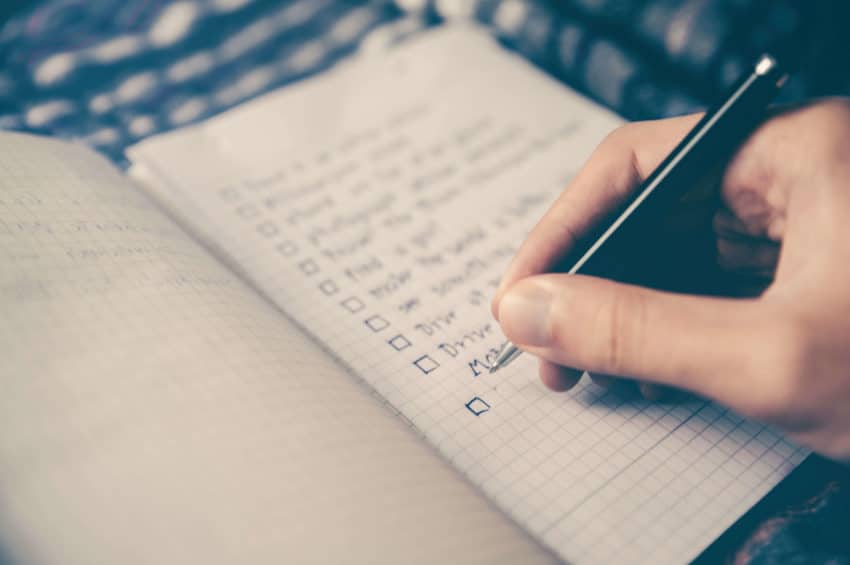How to Not Get Distracted
Updated: June 19, 2024

Ever wonder why you can’t say focused on important tasks? It could be that you have a big deadline approaching, yet you can’t sit still. Perhaps you’re trying to finish a paper for school, but you keep checking your phone. Distractions are everywhere and increasingly so. That’s why knowing how not to get distracted can make all the difference in your productivity.
Being able to focus is different for everyone. Some people work better at night, and others work better in the day. Besides these variations between people and focus, you can train yourself to avoid distractions. Here’s how to get started on mastering this discipline.
First, Cut Yourself Some Slack
1. Avoiding distraction is hard:
If staying focused was easy, everyone would do it. Distractions affect all people in a myriad of ways.
2. You weren’t taught:
It’s interesting to think about how we go to school from a young age, but we’re never formally taught how to learn. That’s why distraction management doesn’t always come easily.
3. You’re in control:
You have to take ownership and agency of yourself. You are the only person who can ultimately choose whether or not to be distracted. These steps will help you achieve better focus, but it’s up to you to practice them.

Photo by Glenn Carstens-Peters on Unsplash
Practical Tips to Stay Productive
1. Keep Your Eyes on the Prize:
Every person has their own personal reasons for why they do certain things. When you have a goal in mind, it’s this motivation that can keep you going when times get tough. When you set out to accomplish something, write down why you are doing it. That way, when it comes to potential distractions, you can look back and remind yourself what you want to achieve.
2. Focus on Specific Tasks:
To-do lists can become long and overwhelming. You may have more than a dozen things you need to get done. Try to narrow down the list and prioritize based on deadlines and importance. That way, you can limit your list to 2-3 things a day so you are more likely to get them accomplished. Another tip: Look at your list and see if accomplishing any task will make getting another one done easier. Do that task first so you can reap the benefits of its domino effect.
3. Get Them Done ASAP:
The less you procrastinate, the more you can get done. This is obvious, but what’s not as obvious is how much small decisions can drain your energy. If you are able to, try accomplishing tasks as soon as you can so that the other trivial elements of your day don’t get in the way.
4. Break it Down:
Many goals take time to accomplish. For example, writing a book starts with writing a page. Earning your degree starts with finishing a course. When you break your goals down into the steps they take, you can chip away at completing them without losing site or motivation.
5. Visualize the Work:
Your mind is a powerful tool that has the ability to create your reality. Before you actually start doing any work, you can imagine yourself doing the work. This starts with the smallest aspect, like imagining yourself writing notes and opening your laptop to read material. In this way, rather than focusing on all the reasons that you don’t want to do something, you’re setting yourself up to just go and do it.
6. Control Your Inner Talk:
You’re often your own worst enemy when it comes to doing what you have to do. This is because your inner self talk can be distracting. However, practice and accountability can help here. For example, if you set up a dedicated place to do the same work every time, then the moment you position yourself there, you’ll be more likely to focus on why you are there.
7. Remove External Distractions:
This plays on the notion of “out of sight, out of mind.” If you turn off your WiFi or remove your phone, then you can’t be distracted by the internet or talking to friends instead of working. Keep in mind that when you set up your workspace (especially if you’re an online student), then only bring the essentials for the task.
8. Not Sure? Skip:
Some people may know to apply this approach to test-taking, but not to work. If you come across something you don’t know, don’t worry. Leave it blank and complete everything that you can do. Then come back to what you don’t know. Otherwise, not knowing something can set you on a spiral of distractions until you find the answer.
9. Practice Focus:
Attention is a practice and discipline. You can achieve it by utilizing techniques and practicing meditation and mindfulness. One technique you can try is the Pomodoro Technique — set a timer for 25 minutes and work on your task without distraction. Then, take a 5-minute break that is also timed. Then, go back to focused work for another 25 minutes. That way, you can work in highly focused sprints.
10. Momentum is Key:
Achieving goals not only requires small amount of intense focus, but you also have to remain consistent and not fall off track. You can do this on a small scale to keep momentum. For example, if you want to run a marathon, you don’t run an extended amount of miles daily, but you do something everyday to help you towards the goal — even if it means just going for a walk.
Why Am I So Distracted?
Before we get into why you feel distracted, let’s go back to the beginning of this article. Don’t be so hard on yourself! Assess your distractions without judgment to try to find the root cause and solve for that first.
Here are some reasons why you may be overly distracted when you try to get the work you need to get done:
1. Overwhelmed:
We exist in an interesting time. We are overflooded by information all the time because of technology and connectedness. While it may not seem obvious, everything we take in requires energy to process. Whether it’s clear or subconscious, we exist in a constant stream of being overwhelmed (that is, unless we practice technological disconnection and mindfulness).
2. Attention is Limited:
Our attention is a resource that we often take for granted. All the overwhelm mentioned above chips away at our stockpile of attention that we have to give.
3. Too Much Activity:
Even if you’re not running around physically to get things done, your mind is actively working to process information and assess your current environment. If you don’t learn how to control your thoughts and apply focus purposely, then you will constantly be allowing thoughts to dominate your stream of attention.

Photo by Anthony Tran on Unsplash
How to Overcome Distraction
Now that you know the reasons why you may become distracted, let’s look at some actual ways in which you can stay focused with these applicable practices:
1. Identify Why You’re Distracted:
You know yourself best. Distractions may not only be external. Perhaps you’re dealing with some internal and emotional distress. Try to clear your head before you judge yourself harshly.
2. Preparation is for Winners:
Become a planner. For every task you want to achieve, there’s a path you will choose to take. Write it down and give yourself deadlines so you can continue moving forward.
3. Turn Off WiFi:
The internet is full of distractions. Make the active choice to turn it off when you’re working on something that doesn’t require it. If you are studying online and need access, then use a website blocking tool such as Freedom.
4. Take a Break:
It’s natural to need to recharge. Allow yourself to take breaks. Whether they are to take a walk for some fresh air, meditate, read for fun, write to a friend, or whatever else clears your mind — it’s acceptable and necessary!
5. Breathing Techniques:
Especially in times when you feel overwhelmed, you can bring yourself back to the present moment by focusing on your breath. There are a variety of breathing techniques to master.
6. Alone Time:
Both digitally and in real life, we live in a hyper-connected reality. Give yourself time to just be alone and recharge. This is a part of self-care.
7. Get Enough Sleep:
People can work on different amounts of sleep, but for the most part, it’s recommended to get at least 7-8 hours each night. During your sleep, your brain is able to make sense of its day and categorize events from your subconscious. For proper physical and mental health, sleep is a requirement.
8. Write it Down:
When you have a lot to do, you’ll probably repeat it over and over in your head. The first step to alleviate the burden of cyclical thoughts and reminders is to write a to-do list down. That way, you’ll be less likely to forget a task. At the same time, you can stop replaying the list in your head.
9. Set a Deadline:
If you aren’t given a deadline for a task from work or school, then try to set up your own realistic deadlines. Having projects that are open-ended mean they can stay open-ended forever.
10. Wake Up Early:
Whether you get straight to work or not, waking up early gives you more hours in your day to do whatever you want. By simply waking up even 30 minutes earlier than normal, you can start you day by meditating, or just writing down your goals. Whatever you choose to do with this time will benefit you (unless you fill it with more unproductive distractions, of course).
11. Track How You Spend Your Time:
If you want to actually figure out what you spend your time doing, you can track this with apps. That way you can monitor what you do and make changes to align with your goals. Then you can continue monitoring to see if your changes are creating positive effects.
More Useful Tips and Tricks
Here are a few more things you can try to stay better focused when you need to be:
- Practice self-care
- Journal and write your worries down
- Try to exercise
- Use a scheduler/calendar
The Takeaway
Life is so dynamic that you are bound to feel distracted every now and then. As a college student or an active person trying to achieve their goals, staying focused is an invaluable skill. Asking yourself “Why do I get distracted so easily?” is the first step in learning how not to get distracted.
Consider the aforementioned tips and tricks and start implementing the ones that speak most to you!
